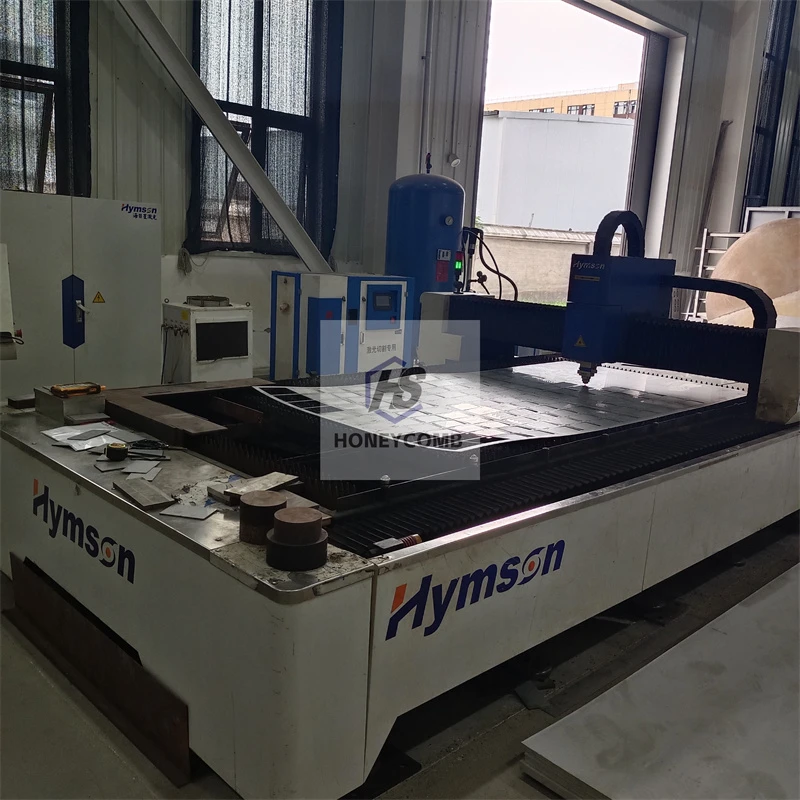
- Afrikaans
- Albanian
- Amharic
- Arabic
- Armenian
- Azerbaijani
- Basque
- Belarusian
- Bengali
- Bosnian
- Bulgarian
- Catalan
- Cebuano
- China
- China (Taiwan)
- Corsican
- Croatian
- Czech
- Danish
- Dutch
- English
- Esperanto
- Estonian
- Finnish
- French
- Frisian
- Galician
- Georgian
- German
- Greek
- Gujarati
- Haitian Creole
- hausa
- hawaiian
- Hebrew
- Hindi
- Miao
- Indonesian
- Italian
- Japanese
- Javanese
- Malay
- Persian
- Portuguese
- Punjabi
- Russian
- Spanish
- Swahili
- Telugu
- Vietnamese

Mar . 04, 2025 10:50
Back to list
EMIEMC/RF Shielding Honeycomb Vent
Electromagnetic interference (EMI) is a challenge faced by numerous industries, from telecommunications to healthcare and automotive sectors. Filtering out EMI is crucial for ensuring the optimal performance of electronic devices. Choosing the right type of EMI protection filter is essential to meet the specific needs of a product and its application. This article explores the intricate world of EMI protection filters, highlighting their benefits and providing insights into their different types and applications.
Trust and reliability are paramount when selecting EMI protection filters. Choosing the right supplier can make a significant difference. Look for suppliers with a track record of providing EMI solutions that meet global standards such as ISO 9001, which ensures quality management, and ISO 14001, which emphasizes environmental management. These certifications provide an added layer of credibility and trustworthiness, assuring that products are both effective and sustainable. Furthermore, engaging with experienced EMC engineers during the selection and installation process can greatly enhance the outcome. EMC professionals bring a depth of expertise that benefits the customization of EMI solutions tailored to specific applications. Customized filters are particularly advantageous in unique applications where standard solutions may fall short. Such expertise elevates the authoritative stance of a product, guaranteeing enhanced performance and compliance with the global standards during its lifecycle. The ongoing evolution of technology necessitates continuous advancements in EMI filter designs. Innovations such as smart EMI filters equipped with real-time monitoring capabilities can autonomously adjust to changing electromagnetic environments. These advancements not only offer superior protection but add an extra layer of reliability, making them a valuable investment for companies looking to future-proof their operations in an increasingly electronic world. In summary, EMI protection filters serve as a critical component in safeguarding sensitive electronics across various industries. Understanding their applications, investing in quality solutions, and collaborating with experienced professionals enhances the credibility and trustworthiness of the products they protect. In an era where electronic devices are ubiquitous, effective EMI solutions are more essential than ever, ensuring uninterrupted performance and compliance with global regulatory standards. Those who prioritize expertise and authority in EMI protection will undoubtedly lead their industries in innovation and quality assurance.


Trust and reliability are paramount when selecting EMI protection filters. Choosing the right supplier can make a significant difference. Look for suppliers with a track record of providing EMI solutions that meet global standards such as ISO 9001, which ensures quality management, and ISO 14001, which emphasizes environmental management. These certifications provide an added layer of credibility and trustworthiness, assuring that products are both effective and sustainable. Furthermore, engaging with experienced EMC engineers during the selection and installation process can greatly enhance the outcome. EMC professionals bring a depth of expertise that benefits the customization of EMI solutions tailored to specific applications. Customized filters are particularly advantageous in unique applications where standard solutions may fall short. Such expertise elevates the authoritative stance of a product, guaranteeing enhanced performance and compliance with the global standards during its lifecycle. The ongoing evolution of technology necessitates continuous advancements in EMI filter designs. Innovations such as smart EMI filters equipped with real-time monitoring capabilities can autonomously adjust to changing electromagnetic environments. These advancements not only offer superior protection but add an extra layer of reliability, making them a valuable investment for companies looking to future-proof their operations in an increasingly electronic world. In summary, EMI protection filters serve as a critical component in safeguarding sensitive electronics across various industries. Understanding their applications, investing in quality solutions, and collaborating with experienced professionals enhances the credibility and trustworthiness of the products they protect. In an era where electronic devices are ubiquitous, effective EMI solutions are more essential than ever, ensuring uninterrupted performance and compliance with global regulatory standards. Those who prioritize expertise and authority in EMI protection will undoubtedly lead their industries in innovation and quality assurance.
Products categories
Latest news
-
Why Vented Aluminum Honeycomb Is Leading the Way in Shielding and Ventilation SolutionsNewsJul.18,2025
-
Why Stainless Steel Honeycomb Panel is the Ultimate Choice for High-Tech Shielding and ProtectionNewsJul.18,2025
-
Why Honeycomb Strips Are Revolutionizing High-Speed Sealing SolutionsNewsJul.18,2025
-
Shielded Glass Innovation Powers the Future of Electromagnetic ProtectionNewsJul.18,2025
-
Precision Starts Here: Revolutionizing Airflow Control with Honeycomb Wind Tunnel SolutionsNewsJul.18,2025
-
Elevate Industrial Performance with Precision-Engineered Steel Honeycomb Core SolutionsNewsJul.18,2025
-
Vented Aluminum Honeycomb: A Smart Shield for Airflow and EMI ControlNewsJul.11,2025















